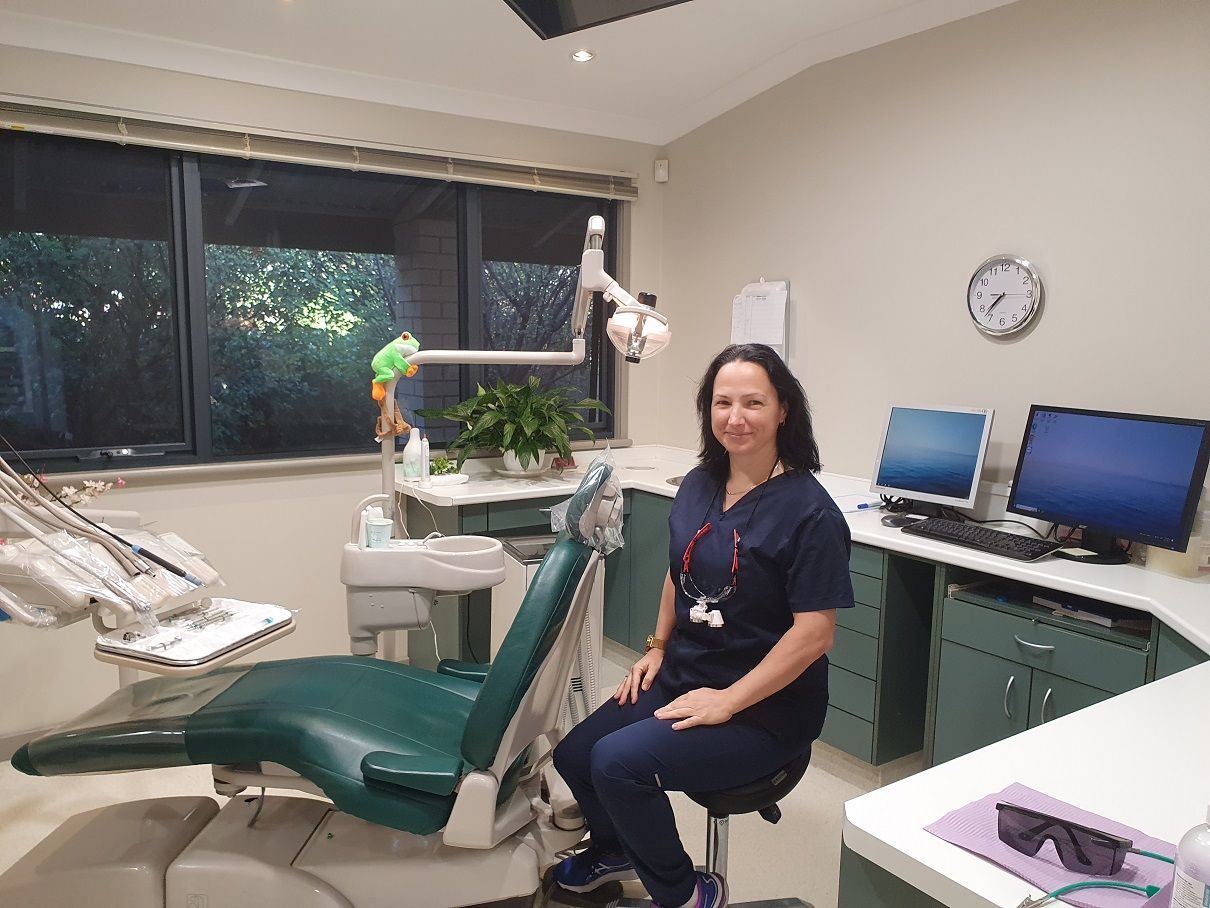Take charge of your own mind™

How my expertise help overcome anxiety
I offer a compassionate approach to managing general anxiety. As a healthcare professional specializing in both oral health and emotional well-being, I have been recognized on the Vice Chancellor's list for oral health therapy. My training from The Institute of Applied Psychology equips me with insightful strategies to address anxiety effectively. Let me be your guide to a place of peace and stability, drawing from my professional expertise and personal experience.
What is Anxiety?
Normal levels of anxiety are a natural aspect of life, but when they become overwhelming or unmanageable, they can impact daily functioning. While occasional anxiety is common, some individuals experience persistent and disproportionate anxious feelings, disrupting their ability to concentrate, sleep, and perform routine tasks. In Australia, anxiety disorders constitute the most prevalent category of mental health issues, affecting approximately one in four Australians at some point in their lives.
For those seeking alternatives, hypnotherapy is presented as a potential treatment for anxiety. In a hypnosis session, individuals undergo a process aimed at inducing relaxation and concentration similar to a sleep-like state. This heightened focus is thought to enhance receptiveness to suggestions and provide an opportunity to delve into subconscious issues. Hypnotherapy sessions may target the cultivation of healthy habits and the reprogramming of an anxious mind.
A research study utilized brain scans to observe individuals undergoing guided hypnosis sessions.
The findings revealed that a hypnotized brain undergoes changes associated with heightened attention, improved emotional and physical control, and reduced self-consciousness.

How is Dental Anxiety is different and why I am the best suited to help
I specialize in helping individuals overcome dental anxiety. My expertise has been recognized through my inclusion on the Vice Chancellor's list, showcasing my commitment to achieving excellence in oral health. With my education from The Institute of Applied Psychology, I bring unique skills in psychotherapy and clinical hypnotherapy, allowing me to take a holistic approach to your dental well-being. Let me guide you on a comforting journey toward improved dental health, understanding the complexities of both your physical and mental needs.
What is Dental Anxiety?
Dental Anxiety is a fear or stress related to dental visits, causing some people to delay or avoid dental treatment. It can be triggered by needles, drills, or the dental setting. Severe dental anxiety, or dental phobia, can lead to worsening dental disease due to avoidance of the dentist. Symptoms include sweating, racing heartbeat, and visible distress.
Avoiding dental visits due to fear can lead to the deterioration of dental health, an increased necessity for urgent care, or more intricate and complex procedures. Routine dental examinations, cleanings, and X-rays can avert oral diseases and assist the dentist in detecting any issues promptly.
The role of Hypnosis:
Fostering Self-Confidence: Through hypnosis, suggestions are employed to enhance self-belief and instill a sense of empowerment.
Overcoming Needle Anxiety/Phobia: For those who experience anxiety related to needles, hypnosis can prove to be highly effective, complementing systematic needle desensitization techniques.
Serenity: Utilizing natural techniques, hypnosis combines relaxation and subconscious suggestion to induce a tranquil state in both body and mind.
Non-Sedative Option: Hypnosis can serve as a valuable alternative when other anxiety management approaches, such as sedative medications or sleep dentistry, are not preferred or deemed suitable.

What can you do to manage pain?
I specialize in transforming chronic pain management experiences. My expertise, recognized through my achievements on the Vice Chancellor's list for oral health, is complemented by my skills in psychotherapy and clinical hypnotherapy. I am committed to delivering excellence in healthcare, providing you with a multifaceted approach to pain relief that blends deep professional knowledge with compassionate understanding of your needs.
Pain and hypnotherapy
Hypnotherapy has been found to alleviate pain and enhance overall well-being. Research indicates that hypnotherapy may be beneficial for individuals experiencing chronic pain, as it can diminish the actual physical experience of pain and alter the way it is perceived.
Additionally, hypnotherapy has the potential to positively impact mood, sleep, and overall quality of life in those dealing with chronic pain. Importantly, it provides a non-pharmacological alternative for pain management without the risks of dependence or harm.

Anxiety is leading to teeth grinding
I specialize in addressing bruxism concerns with a focus on oral health. My recognition on the Vice Chancellor's list for achievements in oral health therapy reflects my expertise. With extensive training in psychotherapy and clinical hypnotherapy, I offer a dual-focused approach to treating teeth grinding. Together, we will develop a treatment plan tailored to your experiences, combining empathy and expert care to alleviate both the physical and psychological aspects of bruxism.
What is Bruxism?
Hypnotherapy has been successfully used for years to treat bruxism which is teeth grinding and clenching, both during sleep and wakefulness. Common causes include stress, anxiety, and lifestyle factors.
Symptoms include jaw pain, headaches, and sleep disruption, inflamed gums, worn down and sensitive teeth. Hypnotherapy addresses these issues by creating a personalized program to eliminate root causes, manage stress, and promote a positive mindset. Studies support its effectiveness by inducing relaxation, raising awareness, and addressing underlying emotional and physiological factors.

You can cease your addiction
I specialize in helping individuals overcome various addictions, such as smoking, alcohol or food. My recognition for significant contributions to oral health, as evidenced by my inclusion on the Vice Chancellor's list, highlights my expertise. With training in psychotherapy and clinical hypnotherapy from The Institute of Applied Psychology, I offer a comprehensive strategy to help you cease your addiction. Let's collaborate to pursue a healthier lifestyle, prioritizing improvements in both your oral health and overall well-being.
Find out more about smoking
Smoking can seriously affect your oral health. Here are some important points:
1. Gum Issues: Smoking increases the chance of gum disease, which harms the bone supporting your teeth.
2. Tooth Problems: Tobacco chemicals can weaken tooth enamel, making cavities more likely and leading to tooth loss.
3. Oral Cancer: Smoking is a big risk for different oral cancers, including those in the mouth, throat, and tongue.
4. Slow Healing: Smokers may face slow healing after dental procedures like tooth removal, due to tobacco`s chemicals restricting blood flow and tissue repair.
5. Other Effects: Smoking can cause stained teeth, bad breath, and whitening of mouth tissues (smoker’s keratosis).
Hypnosis is a technique that promotes deep relaxation and focus, enabling the modification of thoughts, feelings, and behaviours. With a history spanning centuries, it has proven effective for various purposes, including addressing smoking addiction. A 2021 study showed that 86% of participants ceased smoking after six months of trying hypnosis.
In sessions aimed at using hypnosis to quit smoking, a skilled hypnotherapist employs verbal guidance to lead individuals into a highly focused and relaxed state. They then provide suggestions tailored to specific goals. For example, these suggestions might aim to alter perceptions of smoking while in a state of deep focus.
